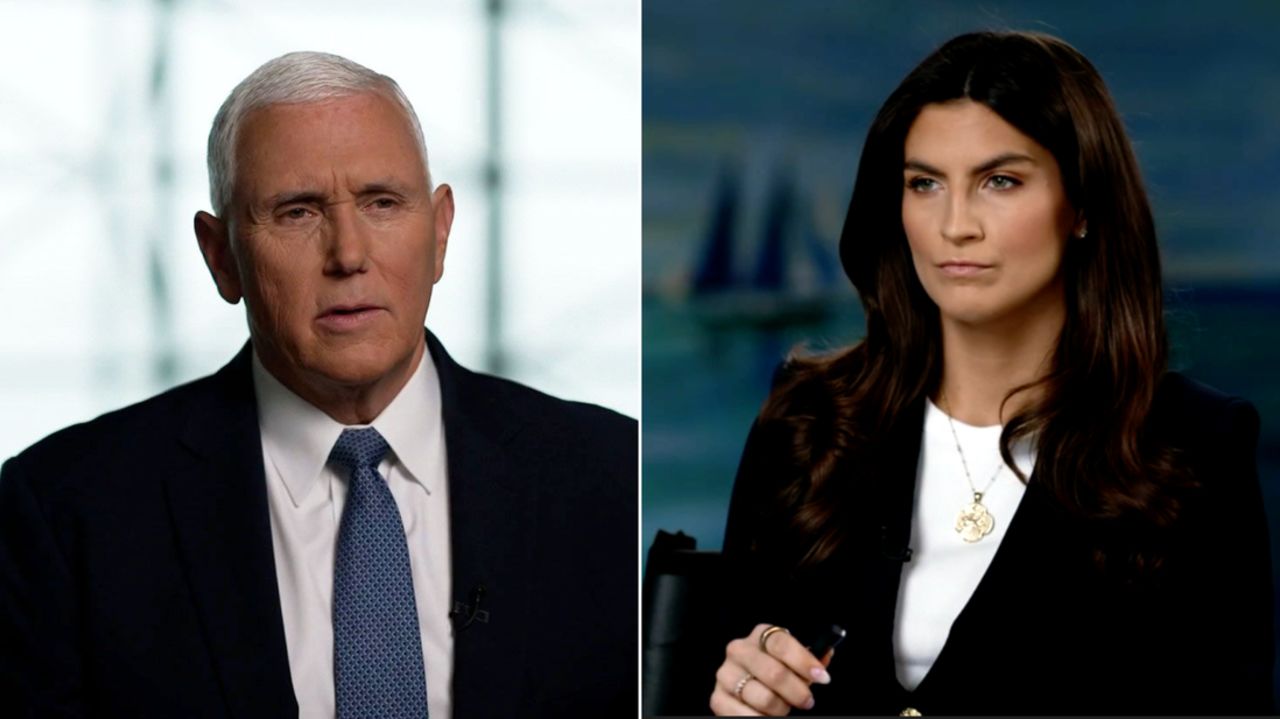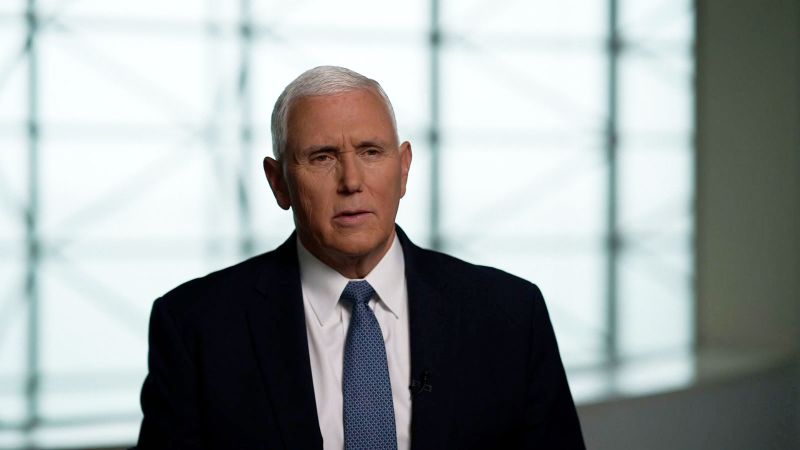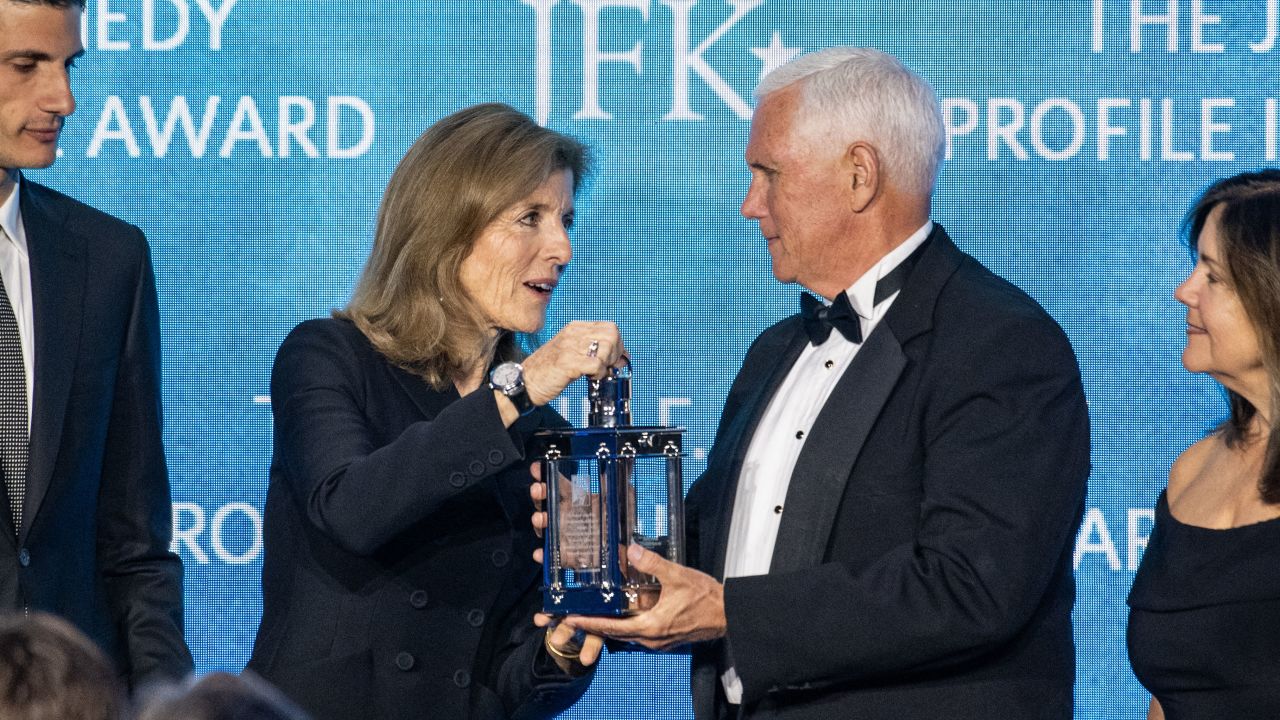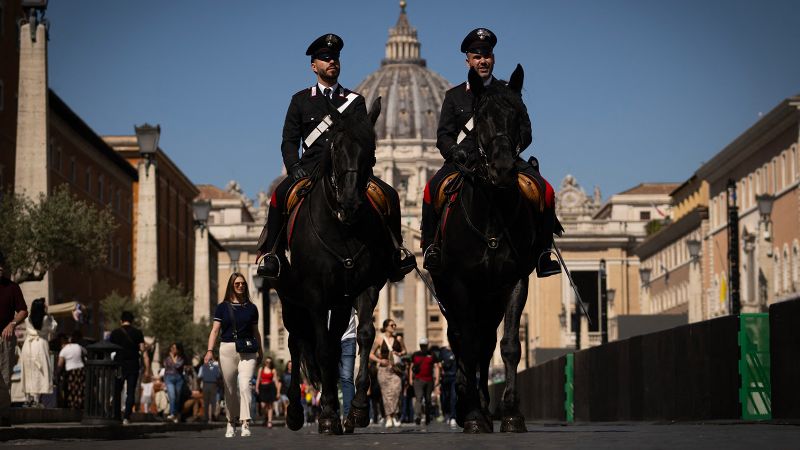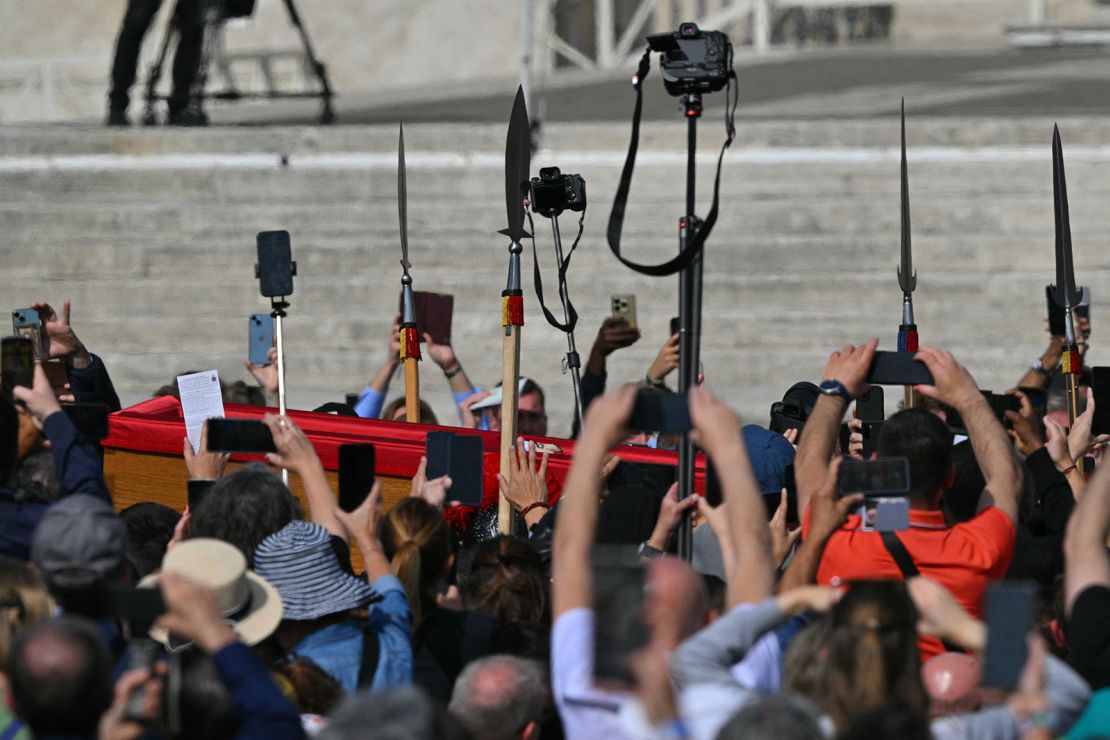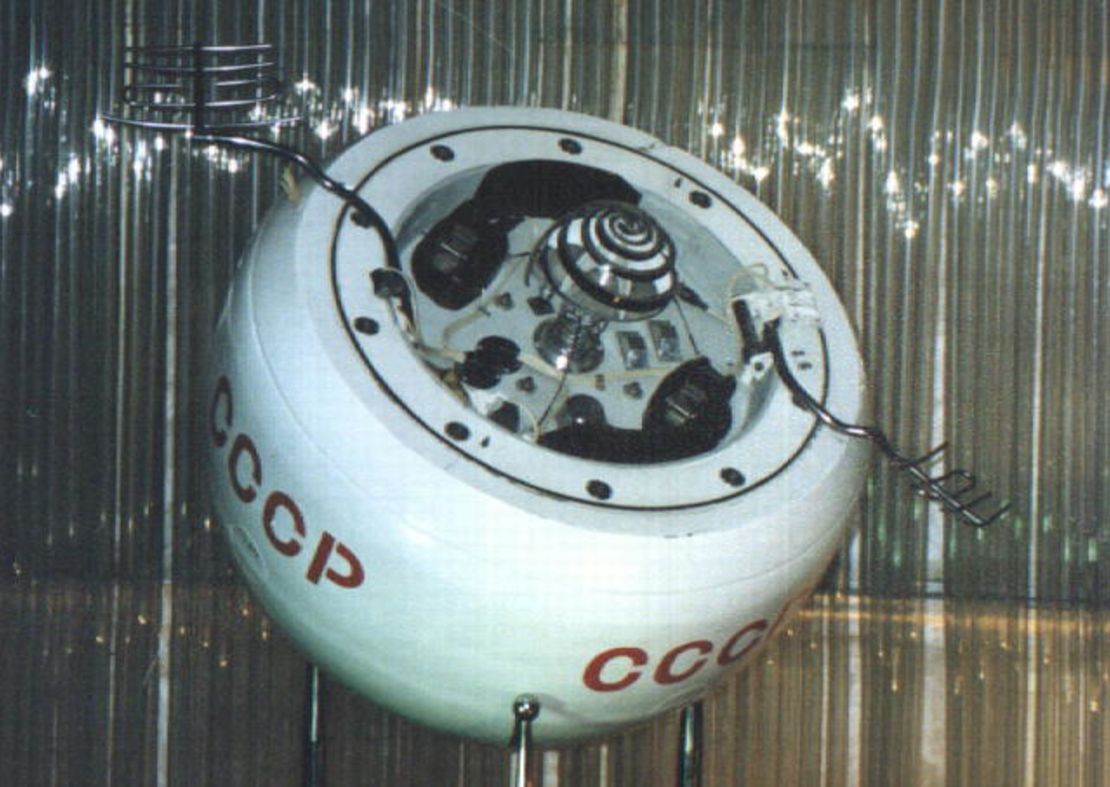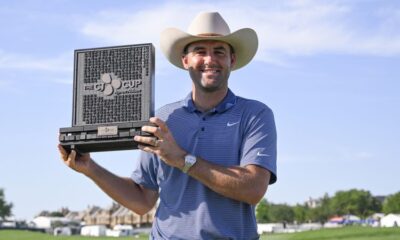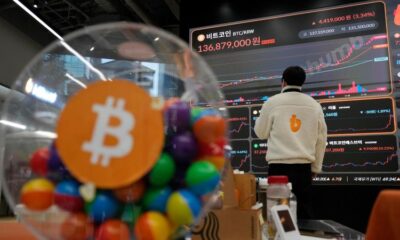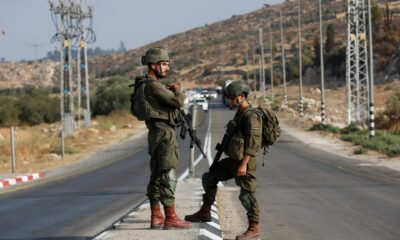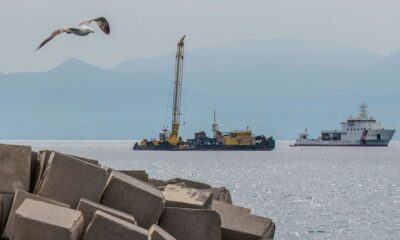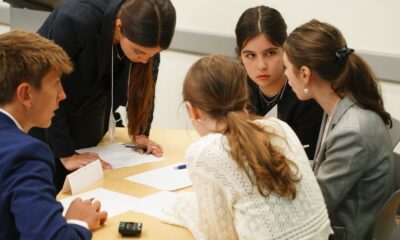Editor’s Note: Watch Kaitlan Collins’ interview with former Vice President Mike Pence on CNN’s “The Source” at 9 pm ET.
CNN
—
Former Vice President Mike Pence criticized President Donald Trump’s across-the-board tariffs on Monday, arguing that a looming “price shock” to the economy and potential shortages will lead Americans to “demand a different approach” from the White House.
In an interview with CNN’s Kaitlan Collins, Pence rebuffed Trump’s recent comments that children in the United States will have to make do with fewer toys.
Trump’s first-term vice president also said he sees some of Trump’s actions as sharp breaks from what he said were the successes of their administration. That includes “wavering support for Ukraine” in its war with Russia and the “marginalizing the right to life” that Pence said followed Robert F. Kennedy Jr.’s selection as health and human services secretary.
Mike Pence: Keeping toys affordable ‘is part of the American dream’
Mike Pence: Keeping toys affordable ‘is part of the American dream’
00:53
Now watching Trump’s return to power from the sidelines, Pence said he plans to make a public case on those issues — in part so that Trump might hear arguments those in his White House aren’t making.
“Whatever the future holds for me, I’m going to try and be a consistent voice for those conservative values that I think are not only the right policy for the Republican Party, but I think they’re the best way forward for a boundless future for the American people,” Pence said.
The former vice president’s comments came the day after he received the John F. Kennedy Profile in Courage award for his actions on January 6, 2021, the day Trump supporters attacked the Capitol. Pence faced pressure from Trump to use his constitutional role presiding over the counting of electoral college votes to seek to overturn the outcome of the 2020 presidential election.
In the interview, which took place at the JFK Presidential Library in Boston, Pence said Trump “sent the wrong message” by pardoning or commuting the sentences of more than 1,000 supporters who rioted at the Capitol.
“I was deeply disappointed to see President Trump pardon people that engaged in violence against law enforcement officers that day. The president has every right under the Constitution to grant pardons, but in that moment, I thought it sent the wrong message,” the former vice president said.
Pence’s wife and daughter were with him in the Capitol that day, and some rioters had chanted “hang Mike Pence.” The former vice president recalled seeing US Capitol Police officers rushing to secure the building even after some had been injured.
“None of them flinched,” he said. “Their courage, their bravery, should be heralded for generations to come, because they secured the Capitol and allowed us to reconvene the very same day and complete our work under the Constitution.”
Pence argued that the first Trump administration’s approach to trade — including renegotiating a pact with Canada and Mexico and targeted tariffs on Chinese imports — was successful.
But he said Trump is taking a much different path now.
“I do have concerns that, with the president’s call for broad-based tariffs against friend and foe alike, that ultimately the administration is advancing policies that are not targeted at countries that have been abusing our trade relationship, but rather are essentially new industrial policy that will result in inflation, that will harm consumers and that will ultimately harm the American economy,” he said.
During the first Trump administration, Pence said he had “many long conversations” with Trump about trade. He acknowledged the two have deep philosophical differences on the issue, with Trump holding a “historic view that at the end of the day, a certain minimum threshold of tariffs on all goods coming into the country will serve the American public and our economy.”
Pence said he believes in “free trade with free nations.”
“We ought to be engaging our trading partners across the free world to lower trade barriers, lower non-tariff barriers and subsidies,” he said. “But when it comes to authoritarian regimes, we ought to get tough, stay tough and demand that they open their markets and respect our intellectual property.”
But, Pence added: “I do think this version of tariff policy that’s broad-based, indiscriminate, applies tariffs to friend and foe alike, is not a win for the American people.”
Pence said Americans could quickly face sticker shock once the 90-day pause Trump announced on April 10 — on the steep “reciprocal” tariffs he previously imposed — is lifted.
He also warned about potential shortages.
“I do have a concern that when the so-called 90 day pause comes off, that even the administration has conceded that there may be a price shock in the economy, and there may be shortages,” Pence said.
Pence accepts award from Kennedys for Jan. 6
Pence accepts award from Kennedys for Jan. 6
00:36
Pence was asked about Trump’s recent comment that “maybe the children will have two dolls instead of 30 dolls, you know? And maybe the two dolls will cost a couple of bucks more than they would normally.”
He said that cheap goods are part of what allow Americans to live within their means.
“I have two grown daughters. I have three small granddaughters. And look, keeping dolls affordable, keeping our kids’ toys affordable, that really is part of the American dream,” Pence said.
“I think the American people are going to see the consequences of this. I think they’ll demand a different approach,” he said.
Pence also broke with Trump on the president’s frequent claims that Canada should become the 51st state.
“I think Canada has been a great ally of ours, who whose soldiers have fought and died alongside Americans in in every war since World War I,” he said.
Pence also broke with Trump on Russian President Vladimir Putin, after Trump said last week he takes Putin at his word that he wants peace with Ukraine. Russia invaded the country more than three years ago.
“If the last three years teaches us anything, it’s that Vladimir Putin doesn’t want peace; he wants Ukraine. And the fact that we are now nearly two months of following a ceasefire agreement that Ukraine has agreed to and Russia continues to delay and give excuses confirms that point,” Pence said.
The former vice president said that Putin “only understands power.”
“It’s the reason why in this moment, we need to make it clear that the United States is going to continue to lead the free world, to provide Ukraine with the military support they need to repel the Russian invasion and achieve a just and lasting peace,” he said. “The wavering support the administration has shown over the last few months, I believe, has only emboldened Russia.”
Pence’s comments were a broad case for the post-World War II global order, and for the United States to play a strong role on the world stage. Trump has withdrawn the United States from some international pacts and urged European nations to spend more on defense.
Pence pointed to the North Atlantic Treaty Organization, a military alliance of European and North American countries, and said if Putin succeeds in Ukraine, he expects Russia would invade a NATO member.
“This is not just about Ukraine for me. I really do believe that if Vladimir Putin overruns Ukraine, it’s just a matter of time before he crosses a border where our men and women in uniform are going to have to go fight him, Pence said.
“I hold to that old Reagan doctrine that if you’re willing to fight our enemies on your soil, we’ll give you the means to fight them there so we don’t have to fight them,” he said.
Pence said the contentious Oval Office meeting between Trump, Vice President JD Vance and Ukrainian President Volodymyr Zelensky in February was “regrettable.”
“I thought President Zelensky was ill-advised to take his argument before the media in the Oval Office, and I thought it was unfortunate the way the president and the administration responded in that moment,” he said.
But Pence also pointed to Trump and Zelensky’s meeting at the Vatican, on the sidelines of Pope Francis’ funeral, and said that “it looks like we’ve put the dialogue back together.”
He said the deal the two nations signed last week that will give the United States access to Ukraine’s mineral resources in exchange for establishing an investment fund in Ukraine “sends a deafening message to Moscow that America and Ukraine are here to stay.”
Pence has been critical of Trump’s selection of Robert F. Kennedy Jr. — the former Democrat-turned-independent 2024 presidential contender who made a late exit from the race and endorsed Trump — as health and human services secretary.
The former vice president said his concerns with Kennedy initially stemmed from his support for abortion rights.
“The very idea that a Republican president would nominate an abortion rights supporter to lead the Department of Health and Human Services is just unacceptable to me. Policies regarding the sanctity of life, regarding conscience protections, all flow through HHS, and I had those concerns,” Pence said.
He also criticized Kennedy’s long history of casting doubt on the safety and effectiveness of vaccines, as a multistate measles outbreak centered in West Texas continues to grow.
Kennedy last week asked the US Centers for Disease Control and Prevention for an agencywide “scientific process” on treating measles and other conditions with medications, as well as alternative therapies such as vitamins, HHS said in a statement.
“I do have concerns that we have a secretary at HHS who has a lifetime career of undermining public confidence in vaccines,” Pence said. “We should have the opposite. And I hope that we continue to hear voices around the country that speak into this moment for the sake of our kids and our grandkids.”
Pence praised some aspects of Trump’s current administration, including his efforts to crack down on undocumented migrants entering the country.
He said he has “great confidence” in Attorney General Pam Bondi, and called Tom Homan, Trump’s border czar, a “great law man.”
Asked about Trump’s recent answer to a question about whether everyone on United States soil deserves due process — “I don’t know, I’m not a lawyer,” Trump said — Pence said he has “every confidence” the administration will “work through the issues of due process and with the backstop of our courts.”
“I think that’s one of the genius aspects of our system and our Constitution, is the protections and the liberties that are enshrined there are provided to persons in America, not just citizens in America. And I have every confidence that the administration understands that,” Pence said.
Source link
